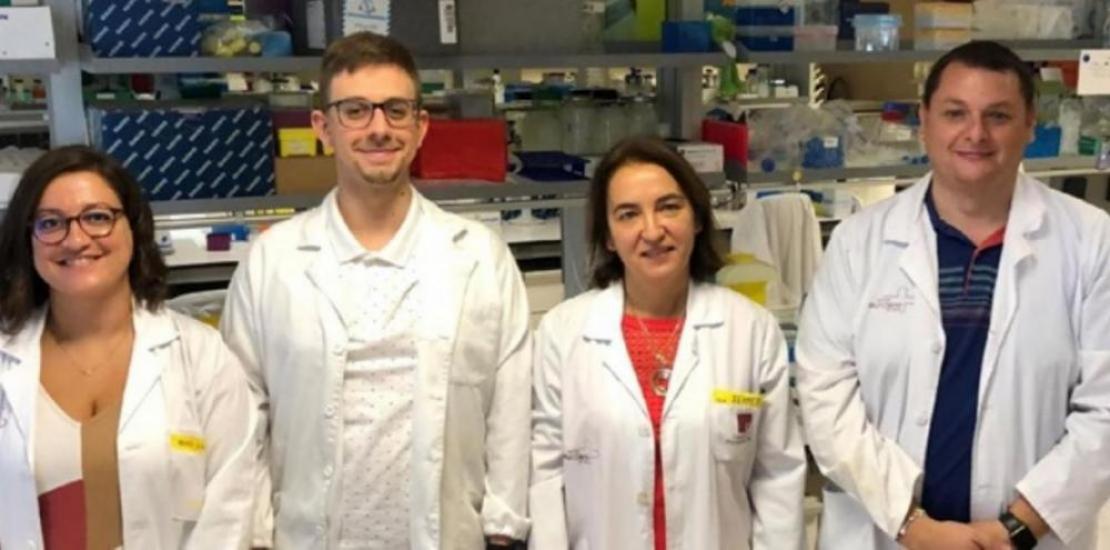Scientists from the UCAM and the Blood Donation Centre discover a key factor in the development of myelofibrosis
The American Journal of Hematology has published their study on the mechanisms of this type of bone marrow cancer, opening the way to finding new treatments.
The UCAM Research Team Myeloid Neoplasms and Developmental Haemostasis, led by Dr Francisca Ferrer and Raúl Teruel, together with scientists Ernesto José Cuenca-Zamora, Pedro J Guijarro-Carrillo, María Luz Morales, María Luisa Lozano, Rocío González-Conejero and Constantino Martínez, from the Centro Regional de Hemodonación (Regional Blood Donation Centre), are studying myelofibrosis. This disease causes fibrosis in the bone marrow, with enlargement of the spleen, fever, weight loss and anaemia, together with an increased risk of progression to acute leukaemia, and is caused by mutations in several genes, the most frequently mutated gene being JAK2. Currently available treatments targeting this gene (JAK inhibitors) are not very effective in either reversing fibrosis or slowing the progression of the disease, and may have side effects.
The researchers studied the role inflammation plays in this blood 'cancer', myelofibrosis, by focusing on the NF-κB pathway, which is a set of proteins that regulate the immune response. They used mice lacking a key molecule in the regulation of this pathway (miR-146a) and observed that they developed myelofibrosis-like symptoms as they aged. This allowed them to investigate the disease by focusing on inflammation, not just mutations.
This is a significant discovery since it suggests that reducing inflammation by inhibiting NF-κB could help reverse some of the severe symptoms of the disease, such as low platelets, an enlarged spleen or bone marrow fibrosis, offering more effective treatments with fewer side effects.
Their findings have been published in the American Journal of Hematology, one of the most prestigious international journals in the field of haematology.
Dr Ferrer and her team confirm that the study results provide a solid basis for future clinical trials and for the development of treatments targeting the NF-κB pathway in patients with myelofibrosis.
Full research article: Doi:10.1002/ajh.27322. Epub 2024 Apr 22.




